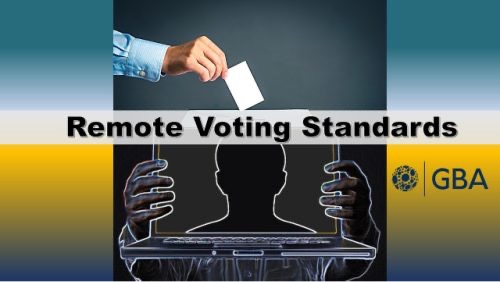The 2020 US elections were a painful display of a breakdown in public trust. Declining trust in elections threatens democratic institutions all over the world, and it is imperative we restore it in our democratic institutions.

US Federal law requires that overseas, military, and disabled voters have access to remote voting. States permit the use of email, fax, or mail-in ballots. However, many of these methods used today lack the security required to maintain integrity of the election results. The most important aspect in restoring trust is to manage all ballots securely, whether paper or electronic.
Susan Eustice, Chair of the Government Blockchain Association (GBA) Voting Working Group has a lifetime of experience with elections. Her father invented the first mechanical voting machine, and she has been a researcher in the election and technology field for over 60 years. Eustice stated, “the same technologies banks use to move trillions of dollars each day can be made private and secure enough for elections by adding blockchain technology”.
However, there are two reasons why mobile devices and blockchain are typically not used for federal elections:
- There is a concern that internet-connected systems cannot be made private and secure for elections.
- The standard used by laboratories to certify election systems is called the Voluntary Voting System Guidelines (VVSG) published by the US Elections Assistance Commission (EAC). However, the VVSG prohibits election systems connected to the internet.
The GBA has released two reports to address these issues.
- The GBA Voting Working Group reviewed the VVSG and identified the changes needed to enable the certification of Remote Accessible Ballot Delivery, Marking & Return (RABDMR). This contribution is offered to the EAC to revise the VVSG and include using blockchain & mobile devices for certifying election systems. Download the VVSG Supplement for Remote Accessible Ballot Delivery Marking & Return (RABDMR).
- The GBA assembled industry experts to debate remote digital voting at an event called Blockchain & Voting. Consequently, the participants agreed to draft a report comparing the functional and security considerations of available remote ballot return The report can be downloaded at Remote Election Technology Report
The work that the GBA has done and continues to do to support the use of blockchain technology, securing elections and public confidence in public institutions is paramount. For more information visit www.GBAglobla.org or contact gerard.dache@GBAglobal.org.
